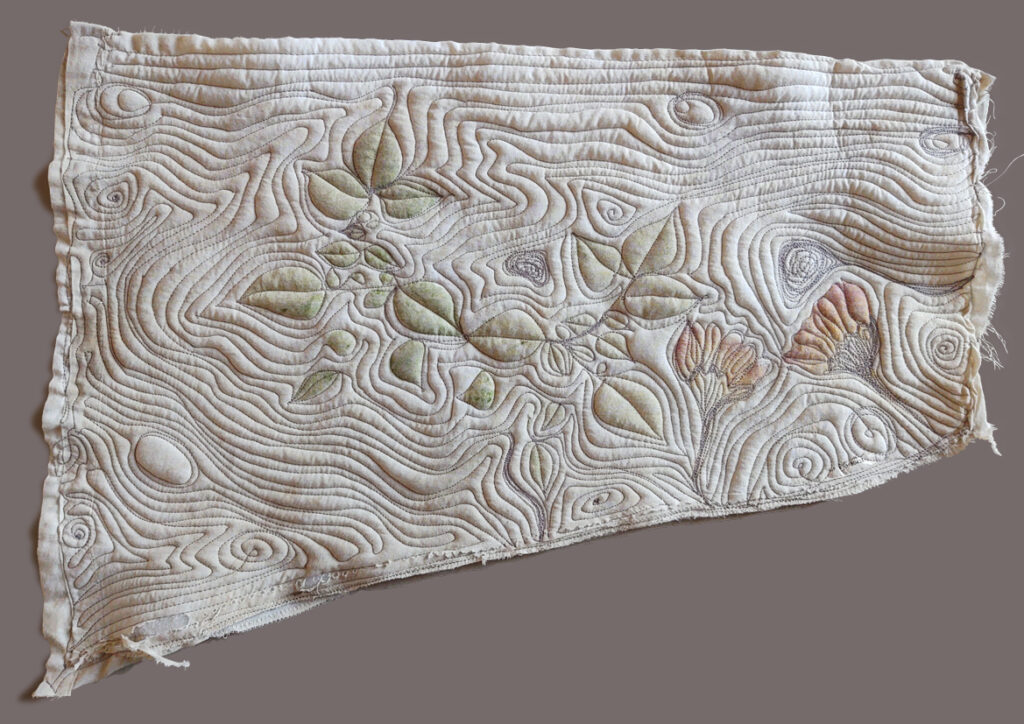
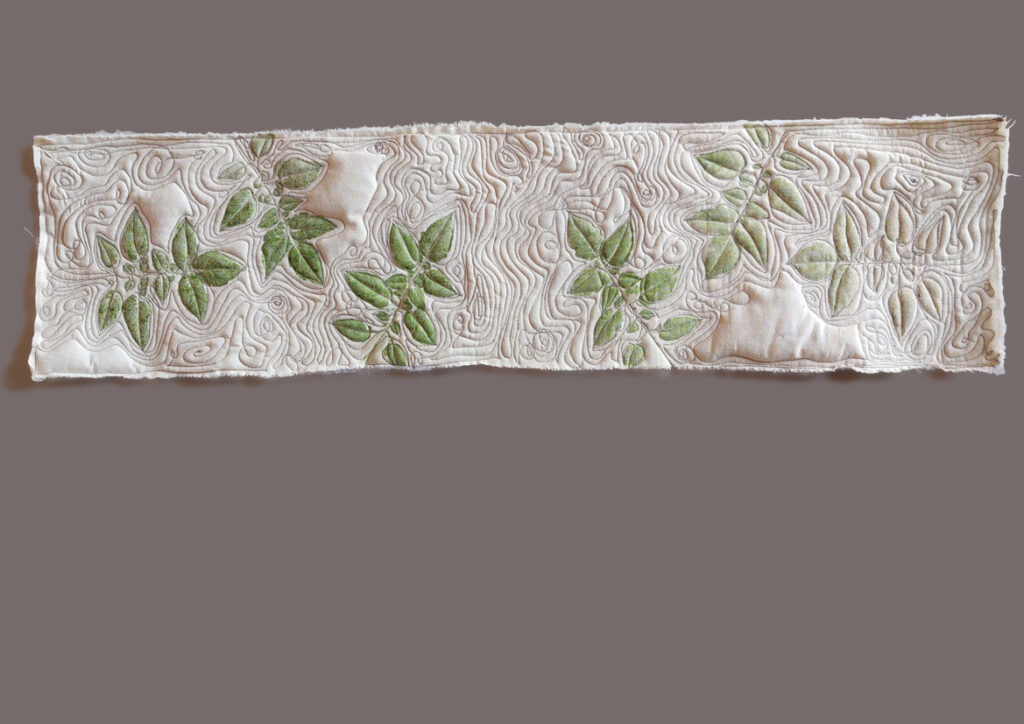
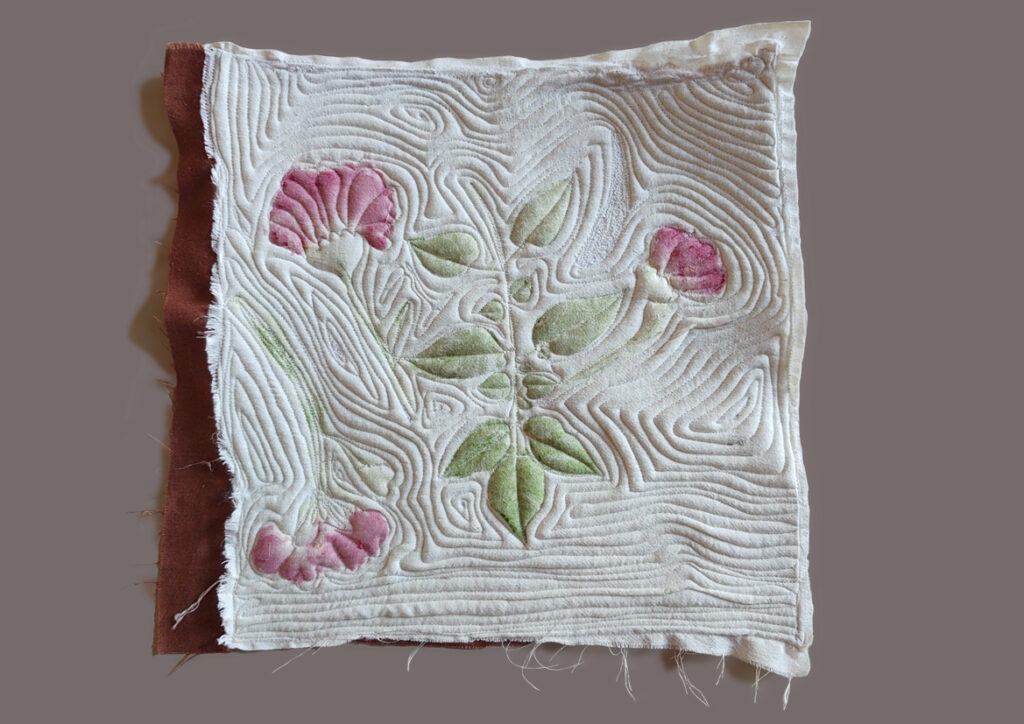
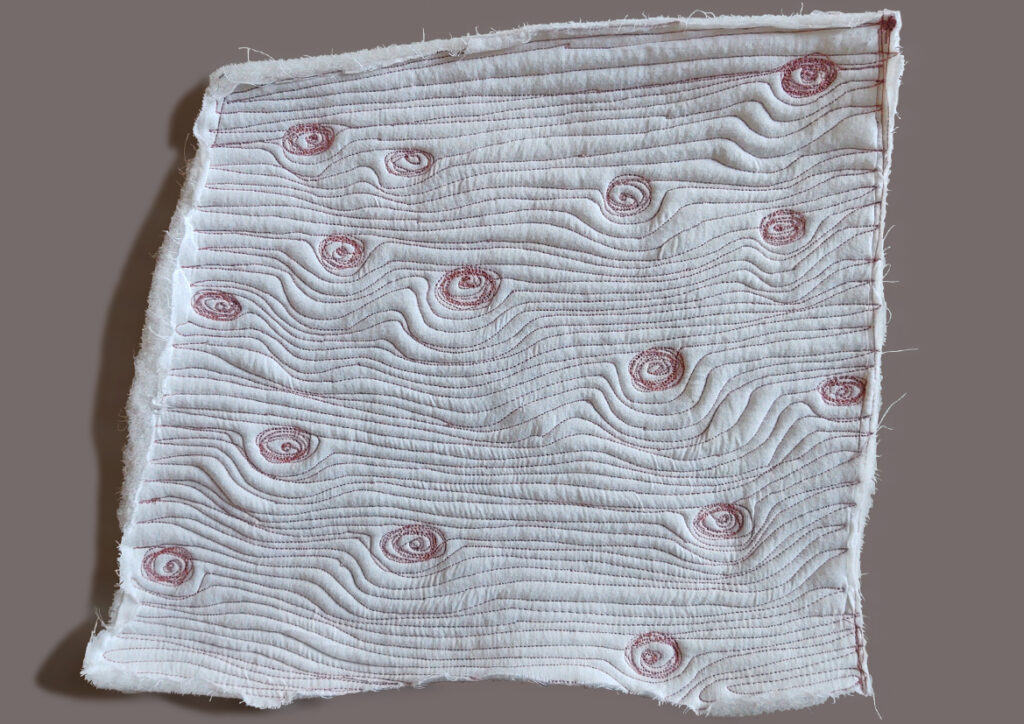
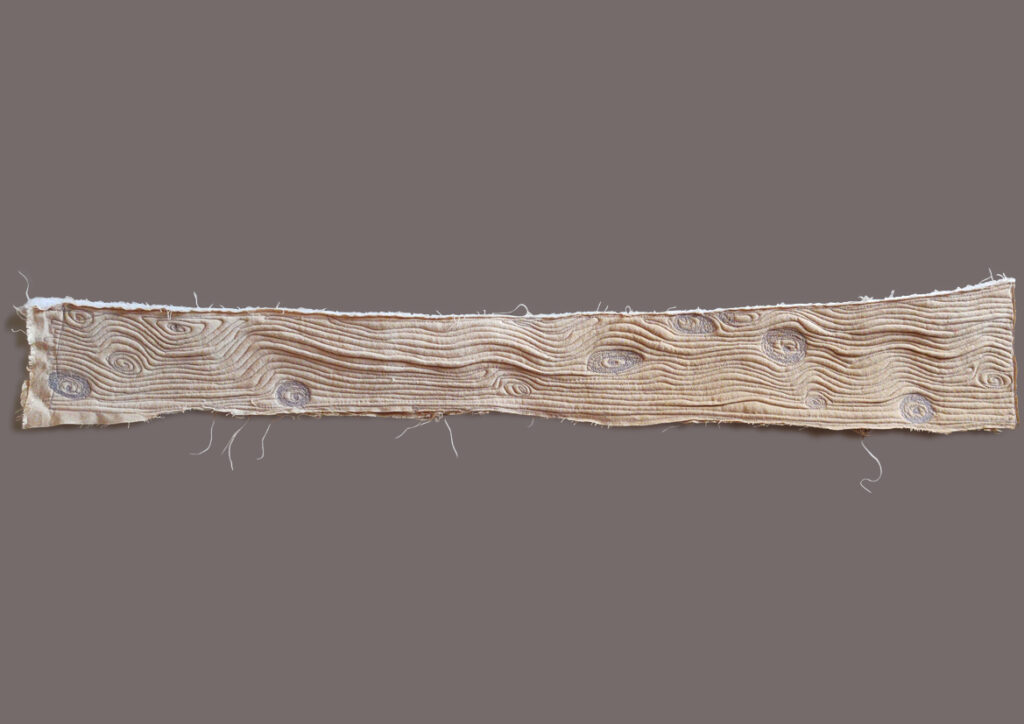
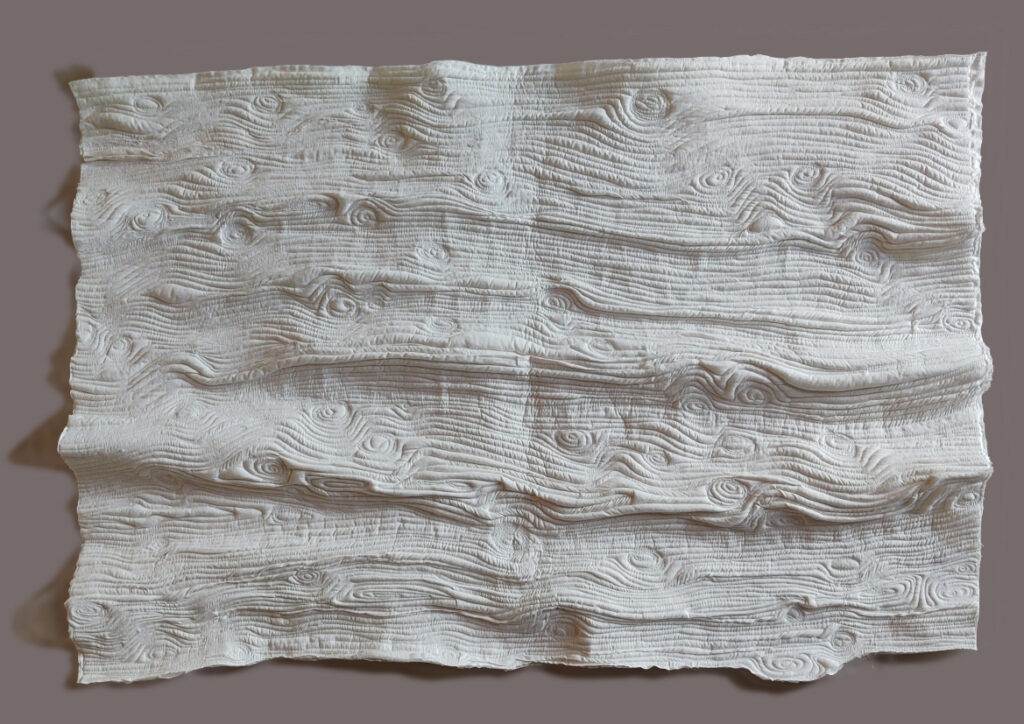
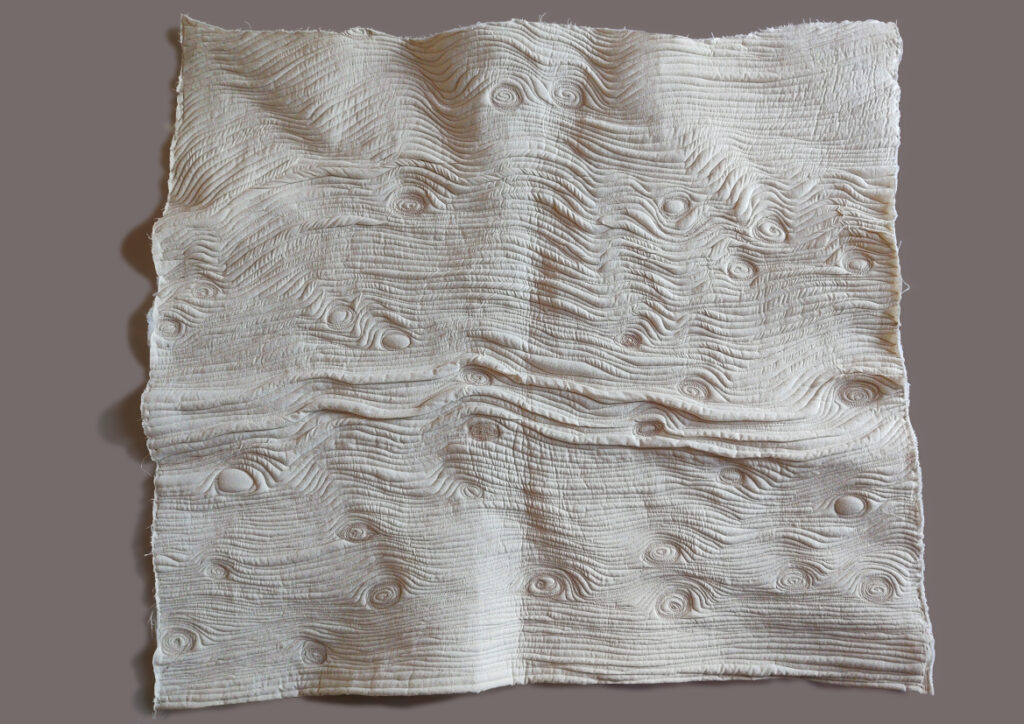
Artist Statement:
My world is 667 square feet big. I have a window in the front that looks out upon a shuttered pub and another window in the back that looks out upon a carpark, some houses, and in the very tippy toppy distance: the sea.
I have been outside 6 times in 271 days. Wait… let me write it out longhand for emphasis:
Two-hundred-and-seventy-one-days.
As with many other things in my life, my artistic practice has changed significantly as a result of the SARS-Cov-2 pandemic. My world–which has never a paragon of tranquillity (lest I give the accidental impression that it ever was)–has become a cacophony of cooking and laundry, of online grocery orders and of doing everything within my ken to keep my ever-present anxiety at a level that still allows me to function, at least a little.
“Even before the pandemic, it was estimated women were doing about three quarters of the 16 billion hours of unpaid work that are done each day around the world (Lungumbu & Butterly, 2020).” In late November of this year, the UN published the results of 38 surveys conducted across the globe. According to the results, that number has “at least doubled (ibid).”
So, like women all over the world, Covid-19 has impacted my life in a very domestic way. Although somewhat bewildering a position to find myself in–particularly when it comes to issues of gender equality–my ability to take up the reins of domesticity has served as an unwished for, but much needed, safety blanket (Kim, 2020).
In addition to domestic tasks, I use my ears to escape onto spaceships where I travel to Mars and exoplanets that are still only named scientific gibberish today, and to periods of human history when the last pandemic was the black plague (Alcott, 1886)–that being said, I did read, Doomsday Book, by Connie Willis (Willis, 2008) in September, so consequently I have also escaped TO the Black Plague, so perhaps that is not a very good example. Semantics aside, my only escape from this pandemic prison (safe haven?) is audiobooks.
Though not overtly present visually in my work, audiobooks have kept me company whilst I cook and do laundry, as I rearrange the furniture for the twelfth time, and especially, as I create artworks. In her book, My Year of Meats, Ruth Ozeki’s main character states:
“I bought a People magazine at the airport and read it very carefully on the plane, cover to cover, every word of it; I cannot recall a single story I read during the five-hour flight, but I cannot remember having a single thought of my own, either, and that was the point (Ozeki, 2006).”
I used to think that was why I read–to protect myself from my own thoughts–but recently I have discovered that the themes and stories I listen to very often seep into my work in strange and unexpected ways. I have come to realise that, through reading, I am searching both the fictional past and the dystopic future for a way to make sense of the present (Goodreads, 2020). At the same time, I am also seeking out the truth in the stories of the women in my family, of the epigenetically inherited emotional trauma I was born with (Daskalakis, et al., 2018) and how my own early childhood trauma has forever transformed my life (Curry, 2019).
In my summative statement for Artistic Research: Themes and Methods, I wrote that “my usual modus operandi is to scream desperate messages of need and longing beneath a guise of humour (Adamson, 2020).” Although these quilted woodgrain pieces are more of a whisper–a quiet plea to be understood, perhaps–they are filled with longing and desperation, nonetheless.
I have been using textiles to explore my own fragility, to investigate my anger and pain and confusion… to traverse my struggles and make public the naked, vulnerable truth of my existence, whatever that might be.
I want to find the beauty in the mundane, to find worth in what I do… in who I am.
The last 271 days have found me hiding from the world beneath a repurposed duvet that has become covered in the poorly quilted landscape of my psyche; ridges and furrows and torn threads lay waste to a field of broken sewing machine needles.
As I pace around my 667 square feet, I want people to know that I am here… I want to scream out of my window to the people walking by on their way to the discount grocery store across the road that this pile of laundry and discarded sourdough starter do not encapsulate my identity.
But instead, like my foremothers, I will quietly sew (on Mars).
Bibliography
Adamson, J. L., 2020. Artistic Research -Themes and Methods. Musselburgh: Edinburgh College of Art / University of Edinburgh. Unpublished Essay.
Alcott, L. M., 1886/2011. Jo’s Boys. eAudiobook ed. Baltimore: Narrated by Barbara Caruso. Recorded Books by Blackstone Audio.
BBC, 2020. Coronavirus pandemic: Women are now doing even more unpaid work. [Online]
Available at: https://www.bbc.co.uk/programmes/p08zq921
[Accessed 26 Nov 2020].
Curry, A., 2019. Parents’ emotional trauma may change their children’s biology. Studies in mice show how.. [Online]
Available at: https://www.sciencemag.org/news/2019/07/parents-emotional-trauma-may-change-their-children-s-biology-studies-mice-show-how
[Accessed 13 10 2020 ].
Daskalakis, N. P. et al., 2018. Recent Genetics and Epigenetics Approaches to PTSD. Current psychiatry reports, 20(5), pp. 1-12.
Goodreads, 2020. Jillian’s Bookshelves: Read. [Online]
Available at: https://www.goodreads.com/review/list/7774015-jillian?shelf=read
[Accessed 10 Dec 2020].
Kim, J. M., 2020. Understanding the Therapeutic Appeal of Domestic Hobbies: Why have cooking, gardening, etc. become the go-to pandemic coping mechanisms?. [Online]
Available at: https://www.psychologytoday.com/gb/blog/culture-shrink/202008/understanding-the-therapeutic-appeal-domestic-hobbies
[Accessed 27 Nov 2020].
Lungumbu, S. & Butterly, A., 2020. Coronavirus and gender: More chores for women set back gains in equality. [Online]
Available at: https://www.bbc.co.uk/news/world-55016842
[Accessed 26 Nov 2020].
Ozeki, R. & Fields, A., 2006. My Year of Meats. eAudiobook ed. Ashland: Blackstone Audio.
Willis, C. & Sterlin, J., 2008. Doomsday Book. eAudiobook ed. Landover: Recorded Books.
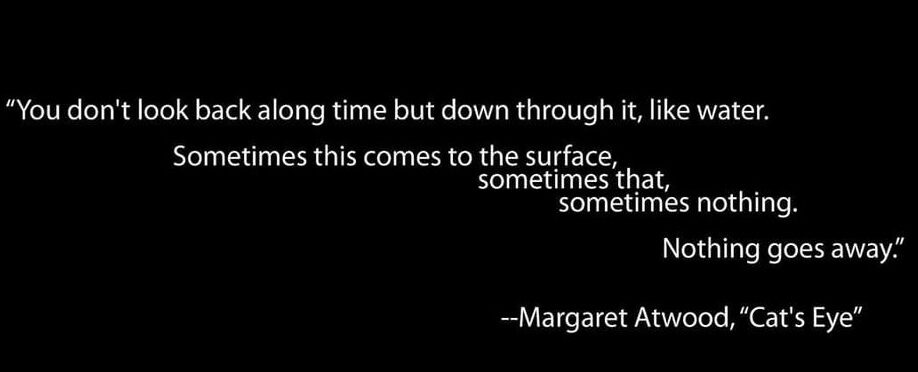


This has made my day.. It made me think ..Thank you
Thank you for reading (and, of course, for all of your support over the last nine years). <3